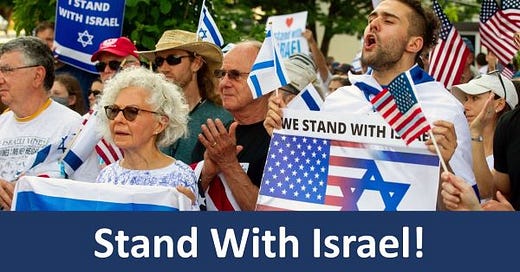Israel committed to hostage deal
Hostages-for-ceasefire-and-terrorists-release agreement with Hamas
Netanyahu: Israel committed to hostage deal that respects red lines
The prime minister discussed "regional issues" with U.S. envoy Brett McGurk during a meeting in Jerusalem.
(July 10, 2024 / JNS)
The Israeli government remains committed to a hostages-for-ceasefire-and-terrorists-release agreement with Hamas as long as the deal adheres to its red lines, Prime Minister Benjamin Netanyahu told U.S. Special Coordinator for the Middle East Brett McGurk on Wednesday.
According to a PMO readout of the Jerusalem meeting, the two men discussed “regional issues.” U.S. Ambassador to Israel Jack Lew and Israeli Minister of Strategic Affairs Ron Dermer also participated.
On Sunday, Netanyahu outlined his red lines for a deal: The ability to resume fighting in Gaza until all war goals have been met; an end to arms smuggling from Egypt; no return of “thousands” of terrorists to Gaza’s north; and maximizing the number of living hostages released.
“The plan that has been agreed to by Israel and which has been welcomed by President Biden will allow Israel to return hostages without infringing on the other objectives of the war,” the PMO said.
Netanyahu’s tête-à-tête with the Biden administration official came as an Israeli delegation led by Mossad Director David Barnea touched down in Doha to continue hostage release and ceasefire negotiations.
CIA Director William Burns, Egyptian intelligence chief Maj. Gen. Abbas Kamel and Qatari Prime Minister Mohammed bin Abdulrahman Al Thani are also expected to attend the discussions in Qatar.
McGurk, who was in Cairo for talks earlier this week, on Tuesday night met with Israeli Defense Minister Yoav Gallant at his office in Tel Aviv.
The pair discussed the challenge of getting Hamas to agree to the deal and “possible solutions to address them,” the Defense Ministry said.
Gallant also “emphasized the importance of establishing a mechanism that would prevent the smuggling of weapons into Gaza, thus cutting off Hamas supplies.” He said that while Jerusalem supports reopening the Rafah Crossing to Egypt, it would not tolerate Hamas’s return there.
Israeli forces took over the Gaza side of the crossing during the start of the Rafah operation in early May, later securing the entire Philadelphi Corridor running along the Gaza-Sinai border. Israel insists that its security control is vital to preventing Hamas smuggling efforts.
“Minister Gallant expressed his appreciation to Mr. McGurk for his personal involvement and leadership on the hostage issue, and thanked the U.S. administration for standing with Israel in our efforts to return the hostages and achieve the goals of the war,” according to the readout.
Mediators are working to revive the ceasefire outline presented by President Joe Biden in May, which calls in its first stage for a “full and complete” six-week truce during which dozens of hostages—women, the elderly and the sick—would be exchanged for hundreds of terrorists. Meanwhile, Jerusalem and Hamas would negotiate the terms of the second phase, in which the remaining male hostages would be freed in return for Israel releasing additional Palestinian terrorists from jail.
In the third phase, the corpses of Israeli civilians and soldiers would be returned for burial, and the reconstruction of Gaza would begin.
Of the 120 hostages remaining in the Strip, 116 were abducted on Oct. 7 (the other four were captured earlier). The figure includes both living and deceased men, women and children.
At least dozens of the remaining hostages are believed to be alive, a senior Israeli official involved in the negotiations told AFP last month.
The official told the agency that Israel cannot commit to ending the war as a precondition for a deal because Hamas could “breach their commitment … and drag out the negotiations for 10 years” or more.









